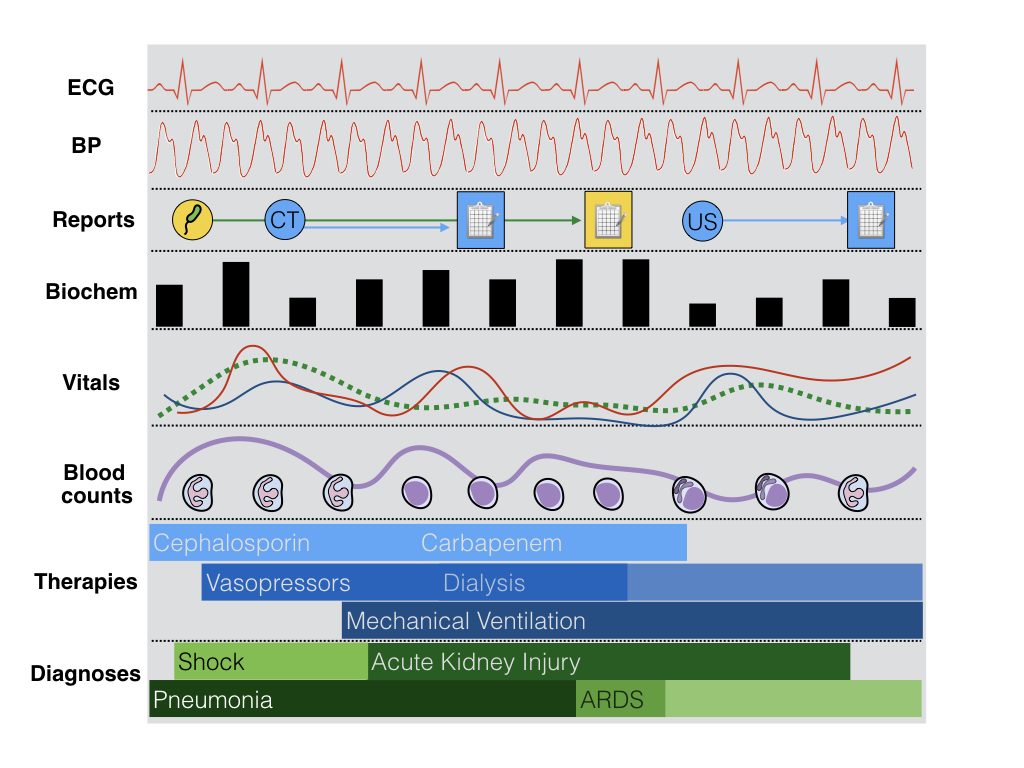CONDUIT Lab

From a scientific standpoint, it’s a very exciting cross-disciplinary endeavour that involves bringing together expertise from clinical medicine, computer science, signal processing, epidemiology, genomics. We’re trying to find a way to bring all those data under the same roof so that they can be made available to clinicians at the bedside who are treating patients with rapidly evolving illnesses.
Patients receiving treatment in an Intensive Care Unit (ICU) of a hospital are inevitably hooked up to a number of monitoring devices, all of which generate massive amounts of data. However, save for measures of blood pressure and heart rate most of this data is discarded, or at the very least goes unused. Dr. David Maslove, a specialist in Critical Care Medicine with the Queen’s Department of Medicine, is looking to challenge this – rather than ignoring the rise of biomedical Big Data, researchers should use it to their advantage.
Recognizing the value of data collected in the ICU, Maslove and colleagues formed the CONDUIT (Combining Novel Datasets to Understand Illness Trajectory) lab. The CONDUIT lab hopes to develop novel datasets that are able to merge different types of biomedical data, as well as analytic tools to turn those data into actionable medical knowledge. With the datasets in question being so large, the CONDUIT lab team is not only made up of medical researchers but academics in the fields of computing and statistics. Overall, the lab’s aim is facilitate better understanding of acute illnesses, both for research purposes and to aid in clinical decision-making processes.
To learn more about the CONDUIT lab, browse its website. You can also learn more about David Maslove and his work in this (e)Affect article.